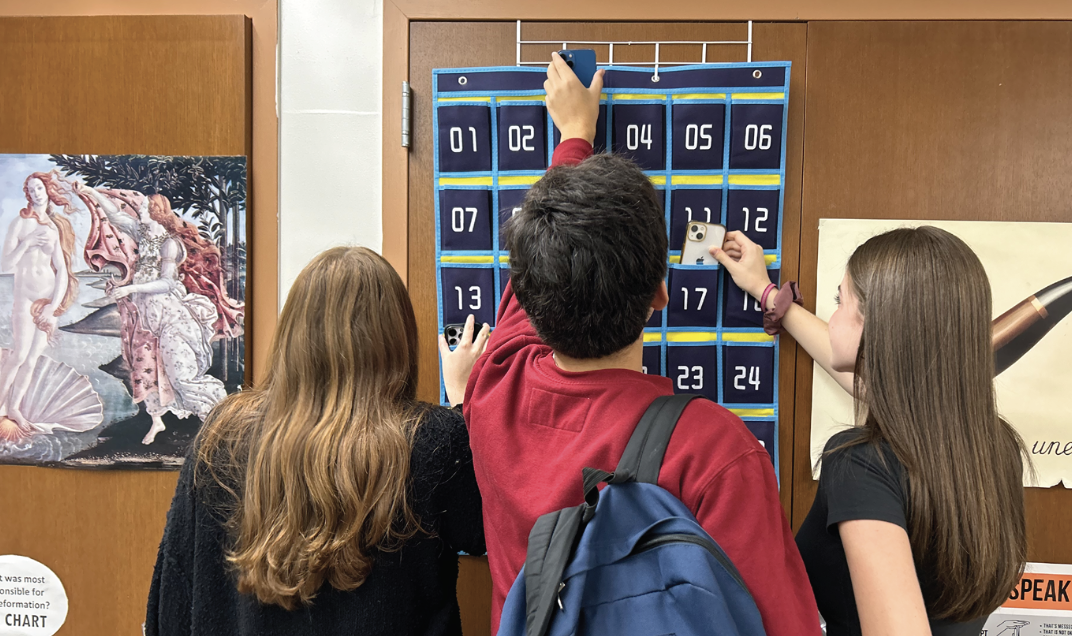Juniors Shouldn’t Talk About College
Underclassmen talk about the college admissions process is not only far-fetched, but also toxic to the entire MHS student body.

Banner for Fantasy University is raised high.
February 28, 2022
College: arguably the most hated topic by students, but one they can’t seem to stop talking about. Having gone through the first 5 months of senior year consumed with college, the conversation seems to be settling down. Deadlines have passed for regular decision, applications were released for the first round of early decision, and mid-year grades have been received. However, it seems as though the students who aren’t even in the eye of the college storm are talking about it the most.
From a young age, the idea of college seems to be a part of the curriculum. As part of my fifth-grade graduation yearbook, they asked each kid to write their “dream school” on a whiteboard, hold it underneath them like a mug shot, and smile. How is it that at the age of ten, we were expected to know where we wanted to go to college? The most ironic thing is that I am now 17 and I still don’t know.
The pressure of knowing what university you want to go to has spiraled out of control. Not only do seniors not want to talk about it anymore, but quite honestly, there is no need to talk about it if you aren’t a senior. A fellow senior, Jen Novick (‘22), feels as though juniors have made it seem “newsworthy,” acting as if it’s “gossip.” Novick, like myself, can understand the excitement or innocence of dreaming about what college you see yourself at has. However, reflecting on it now having gone through the process, she claims that “you have no idea what it’s like until you go through [it]—you cannot speak as though you know.” Novick claims that she can “say with confidence, you don’t know where you want to go.”
It is almost comical hearing juniors read off their “list of colleges” as if it’s a game, most times in the middle of the hallway. Universities like Brown, Cornell, Columbia, Duke, Northwestern, Georgetown, Michigan—the list goes on, but yet they’re all the same. I think my favorite line is one I heard in the library which is “oh, I’ve never heard of that one before… is it even good?” Is this a productive conversation or just an endless cycle of tortuous judgment?
One junior, Anna Sewell (‘23), notes that they are in the “hopeful-fun phase”—a dream-like fantasy of the perfect, prestigious, pristine institution. While the intention is not harmful, it is actually creating a “stressful environment.” Sewell feels that there is “a lot of judgment around college,” as these conversations involve “other people too much in your own college process.” She also notes that it encourages people to “apply to a school with a big name, rather than a school they can actually see themselves at.” While Sewell didn’t directly say this, I gathered that it seems as though most juniors are in a state of denial, living in a kind of la-la land before reality sets in—the reality seniors have been living in for months now.
In general, it seems as though juniors talk about college with their friends, mainly about the ones they are looking at, their acceptance rates, the average ACT/SAT scores of each school, and whether they think they can get in. After talking to a few, it seems as though the more “lighthearted” tone is bearable, but once it becomes “competitive,” it’s just too much. Some believe they know exactly where they want to go and have “known for a really long time.” Many juniors can confidently say they are prepared for the college process, unphased. I guess ignorance really is bliss.
A common thread juniors seem to believe is that taking AP classes or “more difficult classes are effective” in getting into college. Does taking AP Literature really give you a leg-up on your application if you feel like you’re forced to take the class? While this is a rhetorical question, I believe that taking classes you are genuinely interested in not only keeps you sane, but also broadens your perspectives on potential areas of study in the future. Just this year Mamaroneck High School opened up all English courses to juniors, and yet a large majority of them are still gravitating towards the AP classes—it’s hard to believe they are all enthralled and captivated by a 3 hour exam in May.
All judgment aside, I’ve been there. It’s all fun and games until it’s not. If there was one thing I would tell my junior-year self, I would say you’re wasting your time. Focus on “the now”—your grades, your hobbies, and your relationship with teachers. In all honesty, not one discussion about college during my junior year helped me to get to where I am now, and if my junior-year self knew the school I want to go to, I guarantee she wouldn’t believe me. So please, to all juniors or underclassmen: your time will come, it’s just not right now.






